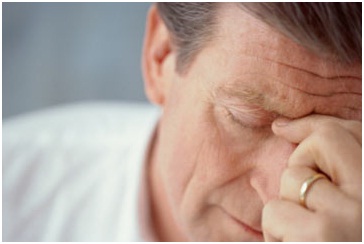Major Depressive Disorder (MDD) Causes, Symptoms, Diagnosis and Treatment

What Is Major Depressive Disorder?
Major depressive disorder, also called clinical depression, major depression, unipolar depression, or unipolar disorder, is a mood disorder that causes a persistent feeling of sadness and loss of interest.
It is a disabling condition that adversely affects a person’s family, work or school life, sleeping and eating habits, and general health.
Causes Of Major Depressive Disorder:
The exact cause of Major Depressive Disorder is not known.
However, scientists believe it results due to a number of factors including:
- Biological differences
- Brain chemistry
- Hormones
- Inherited traits
The following factors increase the risk of developing Major Depressive Disorder:
- Certain personality traits, such as:
- low self-esteem
- dependent
- self-critical
- pessimistic
- Traumatic or stressful events, such as:
- physical or sexual abuse,
- the death or loss of a loved one
- a difficult relationship
- or financial problems
- Childhood trauma
- Blood relatives with a history of :
- depression
- bipolar disorder
- alcoholism
- suicide
- History of other mental health disorders, such as:
- anxiety disorder
- eating disorders
- post-traumatic stress disorder
- Abuse of alcohol or illegal drugs
- Serious or chronic illness, including:
- cancer
- stroke
- chronic pain
- heart disease
Symptoms Of Major Depressive Disorder:
Some common symptoms of Major Depressive Disorder include the following:
- Feelings of sadness, tearfulness, emptiness or hopelessness
- Angry outbursts, irritability or frustration, even over small matters
- Loss of interest or pleasure in most or all normal activities, such as sex, hobbies or sports
- Sleep disturbances, including insomnia or sleeping too much
- Tiredness and lack of energy, so even small tasks take extra effort
- Changes in appetite — often reduced appetite and weight loss, but increased cravings for food and weight gain in some people
- Anxiety, agitation or restlessness
- Slowed thinking, speaking or body movements
- Feelings of worthlessness or guilt, fixating on past failures or blaming yourself for things that aren’t your responsibility
- Trouble thinking, concentrating, making decisions and remembering things
- Frequent or recurrent thoughts of death, suicidal thoughts, suicide attempts or suicide
- Unexplained physical problems, such as back pain or headaches
Diagnosis Of Major Depressive Disorder:
The following tests and exams help in the diagnosis of Major Depressive Disorder:
- Physical exam
- Lab tests including:
- Complete bold count
- Thyroid test
- Psychological evaluation.
- DSM-5
Treatment Of Major Depressive Disorder:
Treatment for Major Depressive Disorder includes the following:
- Medications
- Selective serotonin reuptake inhibitors (SSRIs)
- Serotonin-norepinephrine reuptake inhibitors (SNRIs)
- Norepinephrine-dopamine reuptake inhibitors (NDRIs).
- Atypical antidepressants.
- Tricyclic antidepressants.
- Monoamine oxidase inhibitors (MAOIs)
- Psychotherapy
- Electroconvulsive therapy (ECT)
- Transcranial magnetic stimulation (TMS).
By : depression signs major depression major depression symptoms Major Depressive Major Depressive Disorder major depressive disorder symptoms major depressive order mdd mdd depression mdd diagnosis mdd disorder mdd major depressive disorder mdd symptoms mdd treatment recurrent major depression Signs Of Depression symptoms of major depression symptoms of major depressive disorder what is major depression




